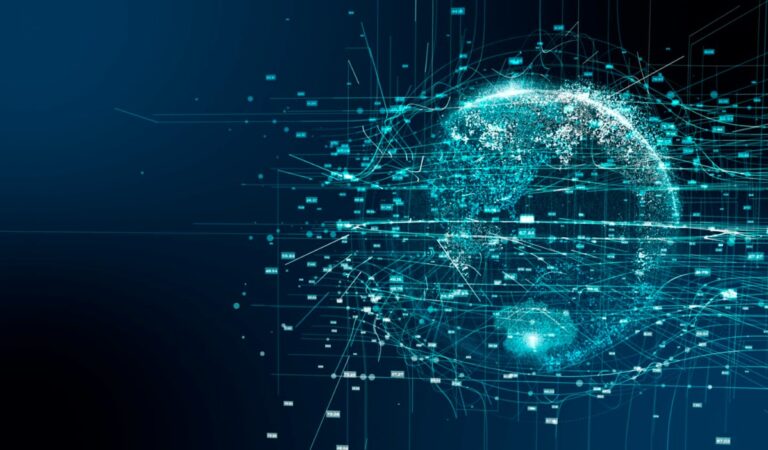Various parts of society are being revolutionized as a result of the emergence of artificial intelligence (AI), which has emerged as a revolutionary force. It has a significant impact on the economy, leading to the formation of industries, employment patterns, and economies all over the world.
In this article, we’ll explore the multifaceted economic impacts of AI, delving into both its positive and negative aspects.
Table of Contents
Definition of artificial intelligence
When computers are able to learn, solve problems, and make decisions in the same way that a human being can, we say that they have artificial intelligence. It entails creating algorithms that give computers the ability to learn from experience, process large amounts of data, and execute jobs that have always required human intellect.
From its inception in the middle of the twentieth century to the present day, when deep neural networks and advanced machine learning are the norm, artificial intelligence has progressed through a series of landmarks.
The rise of data-driven techniques, rule-based systems, and expert systems are some of the most important advancements that have allowed AI to excel beyond human levels in many fields.
Applications of artificial intelligence
Artificial intelligence (AI) has revolutionized many different fields by improving processes and solving previously intractable challenges. Artificial intelligence is having a profound effect in the following areas:
1. Healthcare
Radiologists and other medical professionals benefit from AI’s help in evaluating medical images, which leads to more precise diagnosis. By sifting through massive databases in search of promising possibilities, it speeds up the drug discovery process.
Additionally, AI examines patient data to personalize therapy regimens that account for unique health and genetic aspects.
2. Finance
AI algorithms improve financial decision-making by analyzing market trends and executing trades at ideal moments. Through the analysis of intricate data sets and the identification of possible dangers, it also models, evaluates and reduces monetary risks.
The use of AI algorithms can aid in the prevention of fraudulent transactions by spotting anomalous patterns and behaviors.
Read also: How Wall Street is using artificial intelligence to revolutionize finance
3. Retail
Artificial intelligence (AI) optimizes inventory management by analyzing past data and present market patterns to forecast customer demand.
In order to provide targeted and personalized marketing strategies, AI systems examine consumer behavior. By optimizing logistics, forecasting demand, and minimizing costs, it also boosts supply chain efficiency.
4. Manufacturing
Reduced downtime and increased productivity are the results of AI monitoring equipment performance and predicting maintenance needs.
High-quality production processes are guaranteed by AI-powered systems that inspect items for flaws. In order to optimise production workflows, AI examines production data to find improvement opportunities.
5. Transportation
In order to improve navigation and guarantee safety, artificial intelligence is vital to the advancement of self-driving cars.
Reduced congestion is the result of its systems’ analysis of traffic patterns and optimization of traffic flow. By maximizing efficiency and decreasing fuel consumption, AI systems optimize delivery routes.
Positive economic impacts of artificial intelligence
Artificial intelligence (AI) has far-reaching beneficial effects on the economy, boosting growth, efficiency, and innovation in many different ways. Below are the positive economic impacts of artificial intelligence:
1. Increased productivity
By automating mundane and repetitive processes, AI frees up human workers to concentrate on higher-level, more creative responsibilities. Greater efficiency boosts productivity across all sectors, which in turn helps the economy expand.
2. Cost reduction
Automation enabled by AI technology optimizes processes, minimizes errors, and enhances resource allocation, all of which contribute to a decrease in operational expenses.
Saving money is possible for businesses in many different departments, including production, logistics, and customer service.
3. Innovation and new industries
New goods, services, and business models can be created with the help of AI, which promotes innovation.
The diversity and expansion of the economy are aided by emerging businesses like smart technologies, personalized medicine, and driverless cars.
4. Enhanced decision-making
In order to help people make data-driven decisions, AI systems sift through mountains of data and deliver insightful recommendations. Strategic planning and better use of resources are outcomes of enhanced decision making processes
5. Improved customer experiences
The use of chatbots and personalized recommendation systems, which are powered by AI, improves consumer interactions and satisfaction. More sales and brand loyalty result from engaged consumers who are happy with the service they receive.
Negative economic impacts of artificial intelligence
Although AI has many positive applications, it also presents some difficulties and may have some unintended consequences. Here are the negative economic impacts of intelligence:
1. Job displacement
Certain jobs, especially those involving normal and repetitive labor, may be displaced by AI-driven automation. Some industries may see a rise in unemployment as a result of workforce reductions in industries that rely significantly on physical labor.
2. Initial implementation costs
Particularly for SMEs, the upfront expenses of deploying AI systems might be substantial. A widening gap between companies with the resources to invest in sophisticated AI systems and those without might result from this cost obstacle.
3. Economic disparities
As a result of regions and businesses who have access to more advanced technology seeing faster growth than those without, economic inequities may widen as a result of AI adoption. Pre-existing economic and social disparities may be worsened by an uneven distribution of benefits.
4. Ethical concerns
When educated on biased data, AI systems can unintentionally reinforce those prejudices and produce discriminating or unfair results. People may be hesitant to put their faith in AI systems due to ethical worries about privacy, lack of transparency, and responsibility.
Shaping a sustainable economic future
In spite of the fact that artificial intelligence contains enormous potential for the development of the economy, it is essential to exercise caution and adhere to ethical frameworks in order to lessen the bad effects of this technology.
As the world continues to navigate the landscape of artificial intelligence, it will be essential to strike a balance between innovation and responsible application in order to shape a future economic system that is robust and sustainable.












